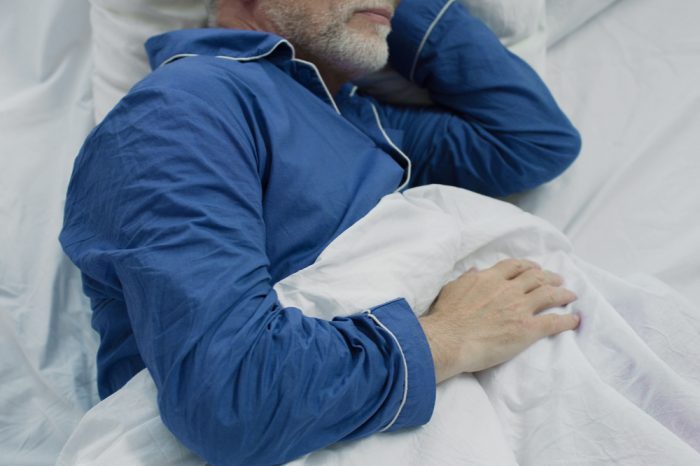THC for sleep is a safe alternative to habit-forming pharmaceuticals. But, does it work?
If you are finding it harder and harder to get quality shut-eye, you are not alone. It is estimated that 50 to 70 million Americans suffer from some form of insomnia. The recommended amount of sleep for adults is 8 hours a day, but many fall short of this guideline for various reasons. The worst of it is the insomnia that keeps you awake all hours of the night. THC for sleep? It’s something that appears to be helping troubled sleepers the world over. But, what does the science say? Does THC work? And is it safer than pharmaceuticals for the same job?
More and more adults find themselves seeking solutions to their sleep problems. Some of these include sleeping pills, alcohol, meditation, white noise, and cannabis. Cannabis is an ancient sleep solution that is experiencing a resurgence in popularity.
The Trouble with Sleeping Pills
Sleeping pills are over-used and abused by many sleep derived adults in search of a solution for their sleep problems. As much as these pharmaceuticals offer sleep in the short term, these are never a long term solution. Many common dangers associated with sleeping pills include risk of withdrawal symptoms, headaches, seizures, anxiety and depression. Some sleeping pills are also known to cause parasomnia, a sleep disorder in which the affected person may do bizarre things and not be aware of their actions the next day. Worse still, most sleeping pills lead to addiction in the long run. These commonly become less effective in delivering sleep and leave one groggy and slow the next day.

These are the most common pharmaceutical sleep aids and their side effects:
Benadryl
This common allergy medication is also frequently put to use as a sleep aid by many U.S. adults. Though it is effective for a short while, in the long run it may cause complications, such as dizziness, reduced coordination, and constipation. Benadryl is in class of drugs known as ‘anti-cholinergic.’ A recent Harvard study found that these drugs may also be associated with cognitive decline and may even contribute to the risk of dementia in long term use.
Lunesta
Lunesta initially sold at an adult therapeutic dose of 3mg, but the FDA halved this dose recommendation after realizing that it associates with severe psychomotor and memory impairment for up to eleven hours after ingestion. This can result in impaired driving and lack of coordination the morning after.
Oleptro
This sleeping pill commonly associates with easy bleeding, arrhythmias, and decreased sodium levels.
Valium
Valium doubles as an anxiety rescue pill. It is frequently concurrent with paranoia and suicidal thoughts if repeatedly used.
This list is not summative of the side effects of sleeping pills; different patients experience different adverse effects. The adverse effects and reduced effectiveness over time have strongly contributed to a renewed willingness to try THC for sleep wellness.
Is THC for Sleep a Better Option?
A study conducted in 2008, found that THC for sleep alters the length of time in REM sleep (the phase of active dreaming). THC diminishes both the duration and intensity of this phase. Some people suffering from insomnia are unable to sleep though REM as these people are already in a state of full alertness due to past trauma or chronic stress. Others who suffer from PTSD are afraid of falling asleep because REM will lead them down the rabbit hole to new horrors.
Because cannabis can alter REM, it serves as a potential remedy for this form of sleep disorder, allowing the patients to sleep soundly through the night. The deep sleep phase commonly associates with more rest and increased energy levels the next day.

Other Patient-Reported Benefits of THC for Sleep:
- Stress reduction which allows you to fall asleep more easily
- Pain control which allows you to sleep in case you were being kept awake due to pain.
- It promotes muscle relaxation which will ensure better quality sleep
- It is a mood enhancer allowing you to fall asleep more easily
According to some small studies, cannabis may has also improve symptoms of sleep apnea. In this condition, the patient has several obstructions in breathing and, as a result, experience frequent wakings and fractured sleep. Interestingly, aged cannabis may have higher efficacy in promoting sleep. This is because when THC breaks down over time, it converts into Cannabinol (CBN) which has a known sedating quality.
In the long run, THC for sleep is safer than sleeping pills as it has fewer associated adverse effects. Studies have revealed that addiction to cannabis is also very rare (about nine percent of consumers). Sleeping pills on the other hand are highly addictive, and it is easy to build dependence on them. In the end, it’s very important to address the underlying problems causing insomnia in the first place. Cannabis may be a suitable sleep aid, but no helper will substitute for the hard work of dealing with the things keeping you up at night.






Thomas Murray
Where can one obtain reliable and safe THC?
Jennifer Grant
You can try weedmaps.com or lift.co. Both sites have a system of reviews and rankings for reliable providers.